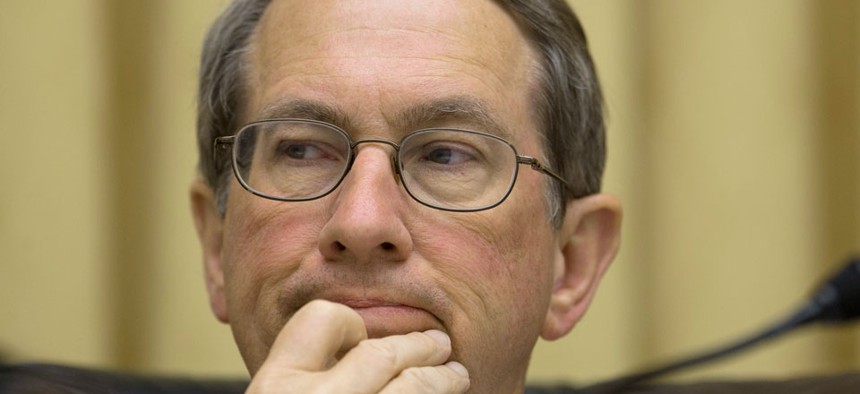Obama's aides have repeatedly said he is weighing input from several different sources -- including 46 recommendations from his surveillance review task force -- and is still in the process of making a determination about how to best alter the NSA's data collection practices without limiting their ability to protect national security. What remains unclear is whether Obama convened Thursday's meeting to solicit more opinion from congressional leaders on the topic or an attempt at forging a coalition of support for a package of reforms put on the table.
White House Press Secretary Jay Carney told reporters Wednesday that Obama "wants to hear from [the lawmakers] to discuss with them the status of his review, which is ongoing." Carney added that Obama is "at that stage still where he's listening and discussing with a variety of stakeholders [on] these issues."
Thursday's huddle with select lawmakers from both chambers followed others at the White House earlier in the week with congressional intelligence staffers, some tech groups and the Privacy and Civil Liberties Oversight Board.
Privacy advocates largely remain skeptical that any actions Obama proposes will go far enough in ensuring the NSA is free from potential abuses, a viewpoint that many members of Congress share.
Obama suggested at his end-year press conference last month that some reforms, particularly regarding transparency, needed to be made to restore public confidence in the NSA, but stopped short of embracing any blockbuster changes even after D.C. District Court Judge derided the agency's bulk data collection as "almost Orwellian" and likely unconstitutional. Obama's public posturing on NSA surveillance has remained virtually unchanged since former contractor Edward Snowden began leaking documents about the scope of the programs last June.
Also on Thursday, House Intelligence Committee Chairman Mike Rogers, R-Ala., and Ranking Member Dutch Ruppersberger, D-Md., vocal backers of the NSA programs, issued a statement citing a new, top-secret Pentagon report that purportedly revealed that Snowden's leaks may "gravely impact" national security. The report also finds that Snowden downloaded about 1.7 million intelligence files.
"This report confirms my greatest fears – Snowden's real acts of betrayal place America's military men and women at greater risk" Rogers said in the statement. "Snowden's actions are likely to have lethal consequences for our troops in the field."
Rogers attended Thursday's meeting at the White House. Ruppersberger, while invited, was unable to attend.




